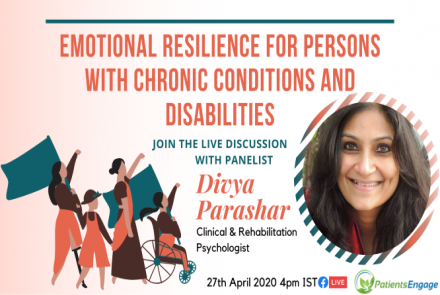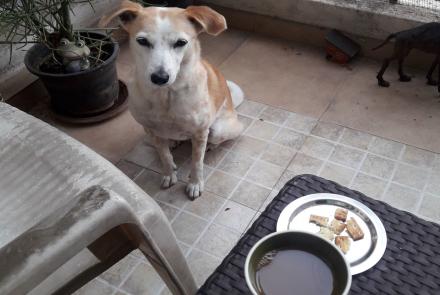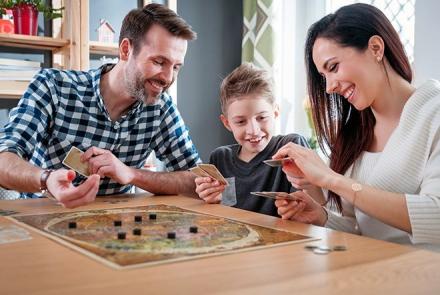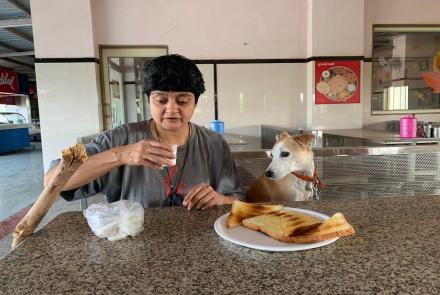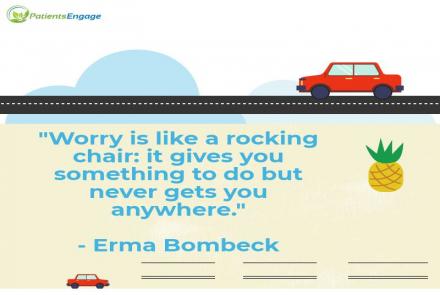
परमीत कौर सोनी मेंटल हेल्थ फाउंडेशन, कोलकाता में कंसल्टेंट क्लिनिकल साइकोलॉजिस्ट हैं। इस लेख में वे बताती हैं कि जब परिवार के किसी सदस्य या करीबी रिश्तेदार को कोविड का निदान मिले तो परिवार के अन्य सदस्य बच्चों को स्थिति से जूझने में सहायता कैसे कर सकते हैं।
हमें ऐसा कई बार देखते को मिलता है कि जब परिवार में किसी को कोविड हो तो सभी उम्र के बच्चों की चिंता अधिक बढ़ने लगती है, यहाँ तक कि उनमें असुरक्षित महसूस करने के कारण चिपकू होने की प्रवृत्ति भी बढ़ जाती है। हमने क्लिनिकल साइकोलॉजिस्ट परमीत कौर सोनी से पुछा कि महामारी के इस कठिन समय में परिवार वाले इस तरह की स्थिति में क्या कर सकते हैं। नीचे पेश हैं उनके सुझाव:
निम्नलिखित कदम परिवार के सदस्यों, विशेष रूप से बच्चों को परिवार में कोविड और उपचार के विभिन्न चरणों के लिए तैयार करने में मदद कर सकते हैं:
1. उनसे बात करते समय उनकी उम्र के हिसाब से सवालों का जवाब दें
बड़ी उम्र के बच्चों (जैसे किशोरों) से बात करते समय, आप पूछ सकते हैं, "आप कोरोनोवायरस के बारे में क्या सुन रहे हैं? आपके क्या सवाल हैं?" छोटे बच्चों से बात कर रहे हों तो आप कह सकते हैं, "क्या आपके उस नई बीमारी के बारे में प्रश्न हैं जो चारों ओर फैल रही है? "। बच्चों से ऐसे प्रश्न पूछने से आपको यह समझने का मौका मिलता है कि बच्चे कितना जानते हैं, और यह पता लग पाता है कि क्या उन्हें गलत जानकारी मिली है।
कई ऑनलाइन संसाधन और चित्रण उपलब्ध हैं जिन्हें खासतौर से कोविड 19 के बारे में बच्चों के साथ बातचीत करने के लिए तैयार किया गया है। उदाहरण: ‘किड्स, वायु और कोरोना: हू विन्स दी फाइट?’। इस पुस्तक को पीजीआईएम्ईआर (चंडीगढ़) और पंजाब विश्वविद्यालय के फैकल्टी ने लिखा है, ताकि बच्चों को कोरोनोवायरस पर उनके प्रश्नों के उत्तर मिल सकें। एक और संसाधन जो मदद कर सकता है: पीएचएफआई द्वारा हिंदी संसाधन: “कोविड 19 पर बच्चों के लिए एक ई-पुस्तिका” (https://www.patientsengage.com/resources/how-can-i-explain-covid-19-my-child)
2. बातचीत के लिए उचित वातावरण बनाएं:
बच्चे और वयस्क सब साथ-साथ बैठें और खुलकर, बेझिझक अपनी भावनाओं को बाँटें। बातों के दौरान चिंताएं और व्याकुलता उभरेंगी। इन पर स्पष्ट रूप से बात करने से बच्चों की चिंता कम होने में मदद मिलेगी।
बच्चे को चुनने दें कि यह बातचीत कैसे होगी। कुछ बच्चे पहले कुछ देर अपनी बात करना चाहेंगे। लेकिन अगर बच्चा बात करने में दिलचस्पी नहीं लेता है, या ज्यादा सवाल नहीं पूछ रहा है, तो भी ठीक है। जैसे-जैसे प्रश्न उठें, उनको संबोधित करें। पर अगर बच्चे में किसी विषय पर दिलचस्पी कम है तो उस विषय पर अधिक विस्तार करने की आवश्यकता नहीं है।
आपका बच्चा सुरक्षित महसूस करे, इस में उसकी मदद करने पर ध्यान दें लेकिन झूठ न बोलें। यदि आपसे कुछ ऐसा पूछा जाता है जिस का आपको उत्तर नहीं पता है, तो कह दें कि आपको नहीं मालूम। इस अवसर का उपयोग उन्हें यह समझाने के लिए भी करें कि वे जानकारी प्राप्त करने के लिए विश्वसनीय संसाधन कैसे देख सकते है - जैसे कि डब्ल्यूएचओ (https://www.who.int/emergencies/diseases/novel-coronavirus-2019)। इस बात से अवगत रहें कि आपके बच्चे को समाचार और जानकारी कैसे मिलती है; विशेष रूप से बड़े बच्चे जो ऑनलाइन जाते हैं और सोशल मीडिया का इस्तेमाल करते हैं।
हो सकता है कि बच्चा कुछ प्रश्न दोहराए लेकिन यह जरूरी है कि आप बच्चे की चिंताओं और प्रश्नों का शांत और आश्वासन भरे स्वर में जवाब दें। यह सुनिश्चित करें कि वे हमेशा जवाब के लिए या अपनी चिंताओं और संदेहों के लिए आपके पास आ सकें। माता-पिता शांत बने रहेंगे तो बच्चों की बेचैनी और चिंता कम होगी; बच्चे यह भांप पाते हैं कि उनके माता-पिता चिंतित हैं या नहीं। कोशिश करें कि बच्चे समझ पाएं कि वे कुछ दिनों के लिए कोविड वाले व्यक्ति के पास नहीं आ सकते हैं, उनके गले नहीं लग सकते हैं, चुंबन संभव नहीं है - बच्चों को यह समझाने के लिए आप आम सर्दी / फ्लू के उदाहरण का उपयोग कर सकते हैं।
3. संवाद जारी रखें
अपने बच्चे पर नजर रखें और देखते रहें कि उन्हें अधिक चिंता या तनाव तो नहीं, या उनके कोई ऐसे प्रश्न तो नहीं जिन पर चर्चा होनी चाहिए। कोरोनावायरस पर बातें करते समय इस अवसर को बच्चों को अपने शरीर और स्वास्थ्य के बारे में शिक्षा देने के लिए भी उपयोग करें - जैसे कि स्वस्थ प्रतिरक्षा प्रणाली (हेल्थी इम्यून सिस्टम) का महत्व (बीमारियों से लड़ना!)
ऐसे प्रश्न पूछें जिन का बच्चों को सोच कर जवाब देना होगा। उदाहरण: आप इन घटनाओं के बारे में क्या सोचते हैं? आपको क्या लगता है कि ये कैसे होती हैं? इस तरह के सवालों से उन्हें उन चीजों पर बातचीत करने में प्रोत्साहन मिलता है जो उन्होंने शायद सुनी हों और जो गलत या अनुचित हैं।
4. दिनचर्या और कनेक्शन बनाए रखें
यदि कोविड से संक्रमित परिवार के सदस्य को अस्पताल में भरती कराया गया है, तो बच्चों को कार्ड बनाने, पत्र लिखने, चित्र या वॉयस नोट भेजने के लिए प्रोत्साहित करें। इससे बच्चे को परिवार के सदस्य से जुड़े रहने की भावना बनी रह सकती है।
इसके अतिरिक्त, एक परिवार के रूप में घर के ऐसे कामों को करने का प्रयास करें जिस का कोविड का इलाज पा रहे सदस्य के लिए अधिक अर्थ हो, जिस की कद्र हो - जैसे कि पौधों को पानी देना।
ऑनलाइन कक्षाओं और घर के सामान्य कार्य और रस्म रिवाज़ को बनाए रहें - जैसे उनके परिचित दिनचर्या - और यदि दैनिक रूटीन अस्त-व्यस्त हो गया हो तो उसे फिर कायम करें - इस से बच्चों को अनिश्चितताओं से निपटने में मदद मिलेगी। परिवार के रस्म रिवाज़ और परंपराओं को बनाए रखना जरूरी है क्योंकि इस से परिवार बंधा हुआ और एकजुट रहता है।
यह हो सकता है कि बच्चे कोविड के सामने लाचार और असुरक्षित महसूस करते हों और उन्हें लगता हो कि वे इससे अपने को बचा नहीं पायेंगे। बच्चे यह महसूस कर पायें कि वे स्थिति के नियंत्रण में है, इस के लिए उनसे कुछ खास कार्य करवाएं। उदाहरण के लिए, बच्चे को समझाएं कि नियमित रूप से हाथ धोना इसलिए महत्वपूर्ण है क्योंकि यह वायरस को दूसरों तक फैलने से रोकने में मदद करता है।
5. मदद मांगें, दूसरों की सहायता लें और दूसरों को काम में शामिल करें:
कोविड के कारण परिवार का कोई सदस्य अस्पताल में भरती होने पर चिंतित होना स्वाभाविक है। अपने बच्चों को उन के करीबी दोस्तों और रिश्तेदारों के संपर्क में रहने के लिए प्रोत्साहित करें। यदि वे किसी विशेष रिश्तेदार के घर में समय बिताने के लिए उत्सुक हैं (जैसे गर्मियों की छुट्टियों में दादी के घर जाना) तो उन्हें वहाँ ले जाने पर विचार करें। यदि आप देखते हैं कि बच्चे की चिंता लगातार बनी हुई है, और बच्चा बहुत भावुक है या उसे सोने कठिनाई हो रही है, तो आप मेंटल हेल्थ काउंसलर से परामर्श कर सकते हैं
6. अस्पताल में भरती परिवार के सदस्य की वापसी के बाद बच्चे का समर्थन करें ।
जब अस्पताल में भरती माता/ पिता/ दादा/ दादी/ नाना/ नानी घर लौटें तो उसके बाद यह स्वाभाविक है कि बच्चा उनके साथ अधिक रहना चाहेगा या बार-बार देखता रहेगा कि वे ठीक हैं और घर पर ही हैं। कुछ समय के लिए बच्चे को ऐसा करने देना अच्छा है। इसके अतिरिक्त, इस समय पर बच्चे के साथ सभी मुद्दों पर बातचीत करते रहना जरूरी है। बच्चे महसूस कर पाएं कि वे देखभाल और व्यक्ति के स्वास्थ्य के सुधार में योगदान दे रहे हैं, इस के लिए उन्हें सरल निर्देश दें और घर के कार्यों में शामिल करें । उदाहरण: बच्चे से कहें, “चलो चलते हैं, नानी को दवा देने का समय हो गया है"। घर में साथ-साथ के खेल और गतिविधियों को फिर से चालू करें, जैसे कि ताश या कैरम - ऐसी गतिविधियाँ चुनें जिन्हें बच्चा पहले उस परिवार के सदस्य के साथ करने का आनंद लेता था।
यह जरूरी है कि देखभाल करने वाले अपने मानसिक स्वास्थ्य को प्राथमिकता दें। वे बच्चे को ठीक से मदद करने में तभी सक्षम होंगे अगर वे स्वयं स्थिति से अच्छी तरह से मुकाबला कर पा रहे हैं। यदि आप अभिभूत महसूस कर रहे हैं, तो कृपया किसी मित्र, रिश्तेदार या डॉक्टर या काउंसलर से संपर्क करें।

परमीत कौर सोनी, कंसलटेंट क्लिनिकल साइकोलोजिस्ट, मेंटल हेल्थ फाउंडेशन


